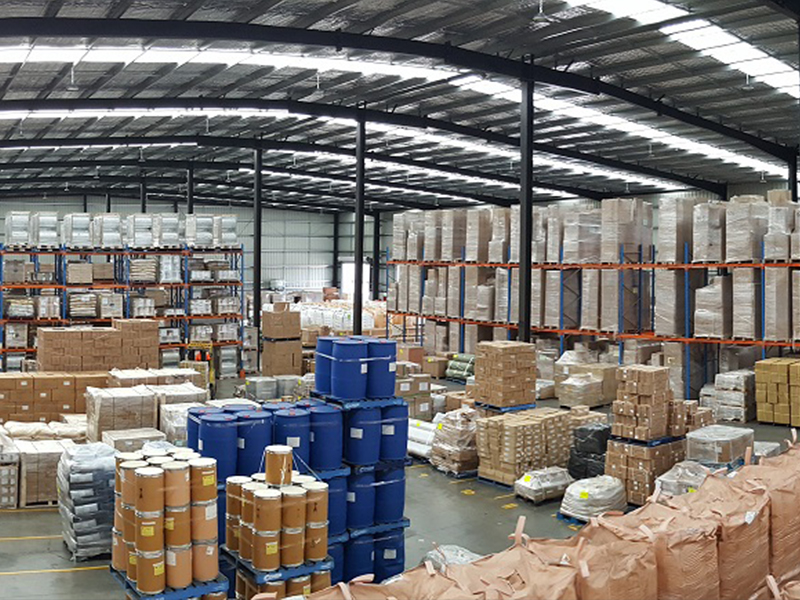CITO will keep a close eye on GetSwift’s route optimisation and track deliveries as its tobacco customer tests the cloud computing software
Melbourne-based CITO Transport has signed a commercial multi-year agreement with GetSwift as its customer, Phillip Morris, becomes the tech company’s latest client.
CITO director Paul Calleja, who established the company in 2005 out of his garage, has grown the business into a 7,500 square metre warehouse in Tottenham and 56 trucks. He hopes to take the business further thanks to GetSwift.
With 900 major accounts on its books, CITO has thousands of customers and handles 250 container movements each month.
Calleja believes now is the time to establish a relationship with the tech company as he explores the online sales market.
“The whole thing with Phillip Morris is very experimental; we’ve all got into this from different angles,” Calleja says.
“We are good at what we do, we’ve got processes in place that are very solid, but I was looking for something very different just to see where we could expand into a different market.
“Online sales is not a platform I’m doing at the moment, we’re more of a third-party carrier working for freight forwarders. So this will predominantly be online sales so I’m keen to see how quick the turnover is between an order and a delivery,” he adds.
“I’m basically using this relationship to test the waters for what I possibly might do down the track.”
CITO Transport offers in-house shipping container consolidation and deconsolidation services within its warehouse.
With a purpose-built layout, the site can accommodate up to 2,000 pallets.
International rise
Australian company GetSwift has grown rapidly since 2013, taking its services to 407 cities in 60 countries.
Its mobile app gives customers real-time experience of their deliveries, allowing freight companies to track jobs without having to invest thousands of dollars into software.
CEO and co-founder Joel Macdonald, who first established Liqourun – an on-demand alcohol delivery service – introduced GetSwift as a software solution for Liqourun.
After teaming up with a couple of large United States partners two years ago, GetSwift now has an office in New York to support its fast growth there, putting Liqourun on the backburner.
GetSwift services over 50 industries, including transport and logistics, couriers and emergency services.
Having specifically-designed software to meet its own needs at Liqourun, MacDonald has created a user-friendly system applicable to the broader market.
The pay-as-you-go (PAYG) system costs around 29 cents per transaction and has no lock-in contracts.
The company was listed on the Australian Securities Exchange (ASX) last December.
Phillip Morris will be utilising GetSwift’s software-as-a-service (SaaS) platform to optimise the delivery of products to its customers.
The platform uses algorithms to improve delivery service for enterprise firms, focusing on the last-mile of deliveries.
The software system includes seamless order acceptance and dispatching, automatic and efficient order routing and fully-visible and GPS-enabled driver tracking and delivery verification.
It enables companies to “dispatch like uber, track like dominos and set routes like Fedex”.
 |
|
CITO Transport handles over 250 container movements each month
|
Online growth
CITO Transport hopes to improve its online bookings and cargo tracking through GetSwift.
With 160 bookings a day, CITO services local, air and sea freight customers.
“I believe that our online booking process is good but if GetSwift can put it together to make it a little bit sharper then we’ll possibly look at putting all of our booking systems through them,” Calleja says.
Having grown by 42 per cent over the last two years, the company prides itself on “good old-fashioned service”.
Adding online sales to the business could set the company apart from the rest, Calleja believes, as his customers are after clearer tracking of cargo.
“Our company is not screaming for us to make a change because we’ve got issues and because we need to fix processes up, we’re fine the way we are going and our company is running very well, however, I just want to have a look and see where this goes,” he says.
“I didn’t just want to look at it from the outside and look at data; I wanted to feel how it all goes and from there on make a decision on whether we want to go any further.
“You can’t go stale in this industry; we live in a changing world and you need to keep up with it. This is one of the reasons why I’m having a look because I want to see what this modern infrastructure can do to my business.”
The company stays competitive by having stringent procedures in place, focusing on key performance indicators, and has grown because of word of mouth.
“As companies grow bigger they end up with receptionists putting people through to departments and sometimes there are three to four layers before you can actually speak to the source of your problem,” Calleja says.
“We always maintain a very personalised service to the client which I believe is one of the strong points of why we’ve grown so quickly.
“The logistics industry is an absolute monster, it’s huge.
“I feel that the bigger companies are more focussed on the e-commerce side of things, which is where the GetSwift platform could help us do one day, which I’m not looking at now but I see GetSwift more matched to online big sales so they’re doing it differently which I possibly can implement in my business.”
Return of customer
With smartphone adoption increasing, GetSwift’s cloud-based logistics has attracted more trucking companies to its books, MacDonald says, though he is unable to reveal the exact number of transport and logistics customers.
GetSwift’s cloud-based transportation and logistics management solutions helps them avoid expensive maintenance, he adds.
 |
|
Joel MacDonald
|
“Because it’s in the cloud it’s completely agile; we consider ourselves a tech company specialising in the logistics space but I can guarantee you what our product is today will be completely different and more improved in 12 months’ time and that’s the beauty of having cloud-based technology.”
The real-time dispatching system gives customers better visibility of their product.
“There’s going to be a lot of efficiencies gained in regards to orders being allocated to drivers in new and efficient ways.
“The end customer who’s receiving the goods wherever it is will have the ability to track their driver in real time and know exactly where the driver is and contact the driver.
“Apart from increasing the efficiency gains from their business side, increasing the customer experience from the customer side is incredibly powerful for their customer and their business.”
Rise of Amazon
GetSwift’s entrance into the US market has helped it prepare for Amazon’s entry into Australia, MacDonald says.
With half of its team based in New York, they’ve been closely watching Amazon’s data-driven business firsthand.
“We’ve had a lot of experience being on the consumer side of Amazon, seeing how they work and observing from afar,” MacDonald says.
“We’ve been fortunate to observe what to do and what not to do to combat that competitive edge that they have, so you couple that with our methodology that the customer is always first and reiterating our cloud-based product to ensure that we’re listening to our clients’ customers; we’re collecting data and that data is incredibly powerful,” he adds.
“We know at any given time based on the weather in Melbourne and which football game is playing who will be ordering chicken wings on a Friday night at what time, who the heavy drinkers in the eastern suburbs of Melbourne are and who are going to buy the most flowers in the western suburbs of Sydney – we’re collecting all that data which is really powerful; if you know what to do with it and use it to advantage to improve the overall experience on your platform, that’s a huge competitive advantage.”
Not many businesses are ready for Amazon but the consumer is, he adds.
“You should have been ready almost 18 months ago; I haven’t seen much of a shift in offerings and I think people are underestimating the impact Amazon will have.
“What I love about Amazon is being incredibly passionate about improving user experience – everything from reducing clicks to having to buying product online and speeding up deliveries even if they lose money.
“This is the last man standing strategy with Amazon, they are completely ruthless and they don’t enter a market unless the data is almost 99 per cent guaranteeing them for their projective model that they’re going to win.
“What we’re seeing now, especially retailers and logistics companies in Australia are starting to wake up and realise we need to step up and improve consumer experience because once they come to town they’re going to lose market share.”
Solid partnership
CITO Transport is a typical example of an Australian business that understands the landscape and changing consumer needs, MacDonald says.
“I’ve been really impressed with the CITO management, they’re really forward thinking and are doing some great things,” he says.
“Our data shows us that after employing GetSwift average revenue per user increases and customer attention increases.
“The logistics business can sometimes be fairly complicated so piecing it all together in a sustainable fashion is how we would like to approach these relationships and setting up for the long term.
“Our data shows that our customers will return – we are seeing that universally after month one and three of deploying GetSwift.”
Read the full feature in the July edition of ATN. Subscribe here.


